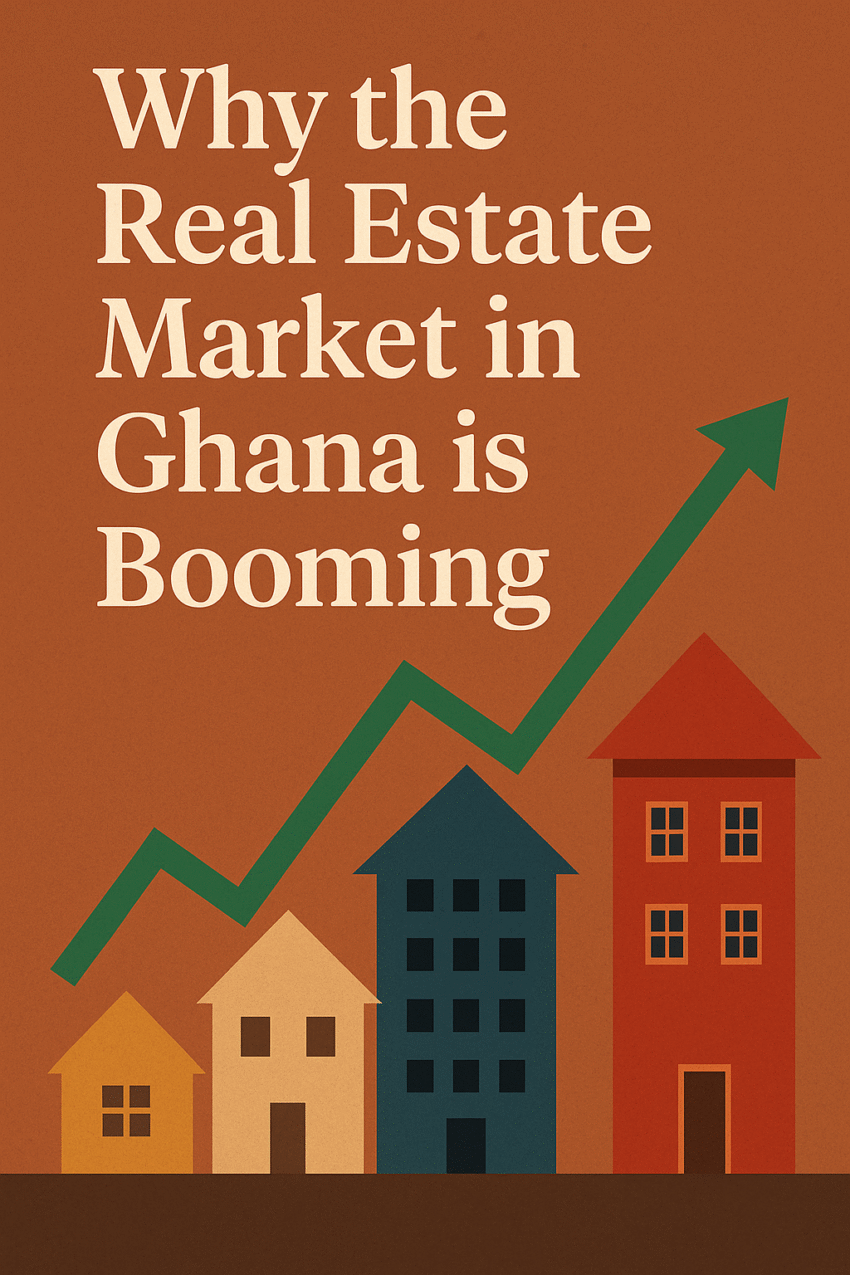The real estate market in Ghana is experiencing unprecedented growth—and it’s not by accident. Driven by a mix of demographics, economics, and global interest, Ghana has become one of the most attractive real estate destinations in Africa.
From bustling cities like Accra and Kumasi to up-and-coming areas like Prampram and Takoradi, the demand for land, homes, and commercial spaces is rising fast.
This boom is powered by four main engines—population growth, a rising middle class, an influx of foreigners, and inflation—alongside government policy and urban development.
Let’s dive in.
- Population Growth
Ghana’s population is rapidly increasing, especially in urban areas like Accra, Kumasi, and Takoradi. With over 33 million people and a growth rate of about 2.1% annually, there is constant demand for housing, especially in cities. Young people entering the workforce are seeking independence, pushing demand for both rentals and home ownership.
2. The Rise of a Vibrant Middle Class
Ghana has seen a steady rise in disposable income and the creation of a growing middle class. These individuals are:
- Investing in homes rather than renting.
- Seeking modern housing with amenities.
- Driving demand for gated communities, apartments, and townhouses.
The middle class also fuels mortgage markets and home loans, contributing to real estate growth.
3. Influx of Foreigners and Returnees
Ghana continues to attract Diasporans returning home to retire or invest. Expatriates working in sectors like oil, gas, and mining. Tourists and entrepreneurs drawn by Ghana’s political stability and business opportunities.
These groups are often looking for high-end homes, serviced apartments, or commercial property, further boosting demand.
4. Inflation and Property as a Hedge
Ghana’s economy has faced currency fluctuations and inflation. Real estate has become a safe investment option, especially in times of economic uncertainty. Investors prefer property to preserve the value of their money. Real estate prices tend to appreciate, making it a store of value. People are converting their cash into land, apartments, and commercial buildings.
5. Government Incentives and Policy Support
Government initiatives such as the National Housing Policy aim to increase housing stock. The push for affordable housing, urban planning, and public-private partnerships is shaping the market. These policies create more opportunities for local and foreign investors.
6. Urbanization and Infrastructure Development
Ghana is undergoing massive infrastructure upgrades: Roads, interchanges, and shopping malls. Upgraded airports and transport links. This makes certain areas more attractive, boosting land value and triggering real estate development.
At BETWIN I, we help the diaspora:
- Find trusted real estate partners
- Navigate land and property ownership
- Invest in secure, verified opportunities
- Connect with the people and policies shaping the industry
Whether you’re building, buying, or just beginning—we’re here to help you own a piece of Ghana.
CONCLUSION
Ghana’s real estate boom is no trend—it’s a transformation.
Backed by:
- Population growth
- Middle class expansion
- Diaspora and expat demand
- Inflation-proof investments…plus infrastructure and supportive policies.
Now is the time to explore, invest, and build your future in Ghana.


